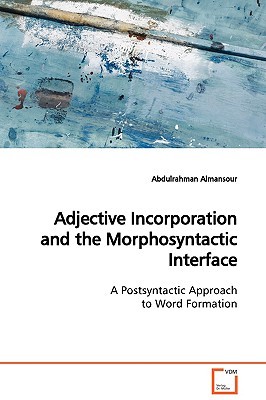
- We will send in 10–14 business days.
- Author: Abdulrahman Almansour
- Publisher: VDM Verlag
- ISBN-10: 3639104900
- ISBN-13: 9783639104905
- Format: 15.2 x 22.9 x 0.8 cm, softcover
- Language: English
- SAVE -10% with code: EXTRA
Adjective Incorporation and the Morphosyntactic Interface A Postsyntactic Approach to Word Formation (e-book) (used book) | bookbook.eu
Reviews
Description
The determination of the component of Universal Grammar where word formation takes place has been a major area of controversy in the literature. The main goal of this book is to uncover the component of Universal Grammar where a morphologically-complex de-adjectival verb is formed. It shows that although the internal structure of morphologically-complex de-adjectival causatives is empirically and theoretically predicted to be opaque to phrase-level operations (Borer 1991; Li 2005), syntactic processes and descriptions are not oblivious to the internal structure of that derived structure in Oromo and Amharic. Building on a well-motivated assumption that there is no well-formed syntactic structure into which a synthetic de-adjectival verb might project (Li 2005), we advance an argument to the effect that both members of those derived de- adjectival causatives are lexically independent. Inspired by work done in Distributed Morphology (Halle & Marantz 1993), we maintain that a merger of the members of de-adjectival causatives takes place post-syntactically in an intermediate level of representation called morphological structure (MS).
EXTRA 10 % discount with code: EXTRA
The promotion ends in 18d.14:53:51
The discount code is valid when purchasing from 10 €. Discounts do not stack.
- Author: Abdulrahman Almansour
- Publisher: VDM Verlag
- ISBN-10: 3639104900
- ISBN-13: 9783639104905
- Format: 15.2 x 22.9 x 0.8 cm, softcover
- Language: English English
The determination of the component of Universal Grammar where word formation takes place has been a major area of controversy in the literature. The main goal of this book is to uncover the component of Universal Grammar where a morphologically-complex de-adjectival verb is formed. It shows that although the internal structure of morphologically-complex de-adjectival causatives is empirically and theoretically predicted to be opaque to phrase-level operations (Borer 1991; Li 2005), syntactic processes and descriptions are not oblivious to the internal structure of that derived structure in Oromo and Amharic. Building on a well-motivated assumption that there is no well-formed syntactic structure into which a synthetic de-adjectival verb might project (Li 2005), we advance an argument to the effect that both members of those derived de- adjectival causatives are lexically independent. Inspired by work done in Distributed Morphology (Halle & Marantz 1993), we maintain that a merger of the members of de-adjectival causatives takes place post-syntactically in an intermediate level of representation called morphological structure (MS).


Reviews